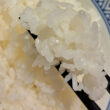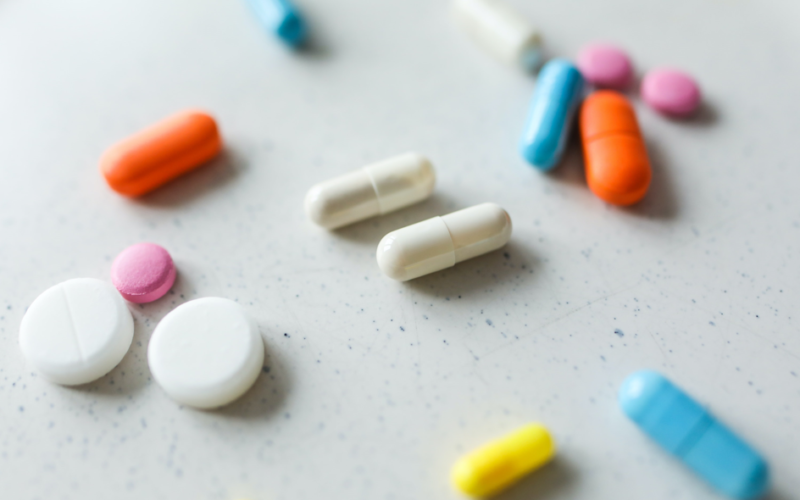There are a variety of vitamin B complex products in the pharmacy, and their composition ratios are different. How do consumers choose? There are 8 types of vitamin B. Let us understand their composition and function together.
London, UK (Business Northeast) – Vitamins are the collective name for a series of organic compounds. They are micronutrients needed by the human body and cannot be produced by the human body. They need to be supplemented through diet and other means. Modern people eat more meat and fewer vegetables. In the case of unbalanced nutrition, people will take in micronutrients through vitamin supplements. Among them, vitamin B is a nutrient often supplemented by office workers.
The human body needs 13 kinds of vitamins, including 4 kinds of fat-soluble vitamins (vitamin A, D, E, K) and 9 kinds of water-soluble vitamins (8 kinds of vitamin B, vitamin C). 8 kinds of vitamin B, are B1, B2, B3, B5, B6, B7, B9, B12. Vitamin B complex plays an important role in cell metabolism and the synthesis of red blood cells. Each type of vitamin B is a cofactor involved in the metabolic process. They help regulate metabolism, maintain skin and muscle health, and enhance immune system and nervous system functions.
Different types of vitamin B:
Vitamin B1 (Thiamin)
Vitamin B1 is the first vitamin to be found in the vitamin B group. It mainly helps metabolism and maintains appetite. Vitamin B1 is responsible for the metabolism of sugars and carbohydrates and can be obtained from whole grains.
Vitamin B2 (Riboflavin)
Vitamin B2 mainly helps skin health. Lack of vitamin B2 may cause chapped lips. When food is cooked at a high temperature or exposed to sunlight (ultraviolet rays), it is easy to lose vitamin B2. Vitamin B2 can be obtained from various meats, whole grains, milk, and eggs.
Vitamin B3 (Niacin)
Vitamin B3 can relieve the discomfort of drunkenness. If you want to drink, you can choose some snacks rich in Niacin: peanuts, tuna, edamame, pork, etc., but the best soothing way is to drink plenty of water to accelerate the excretion of urine. Vitamin B3 can be obtained from various meats, whole grains, milk, and eggs.
Vitamin B5 (Pantothenic acid)
Vitamin B5 mainly helps the metabolism of amino acids. Animals need pantothenic acid to synthesize coenzyme A, which is an essential substance for metabolizing carbohydrates, proteins, and fats. Vitamin B5 can be obtained from various meats, whole grains, milk, and eggs.
Vitamin B6 (Pyridoxine)
Vitamin B6 mainly helps the health of the nervous system and assists in protein metabolism. Studies have shown that a lack of B6 and B12 may lead to depression. Vitamin B6 can be obtained from various meats, whole grains, and nuts.
Vitamin B7 (Biotin)
Vitamin B7 mainly helps the normal metabolism of energy and is also known as Vitamin H or Coenzyme R. If a large amount of raw protein is consumed, it will hinder the absorption of biotin, which may lead to hair loss, weight loss, and skin inflammation. Vitamin B7 can be obtained from various meats, whole grains, milk, and eggs.
Vitamin B9 (Folic acid)
Vitamin B9 mainly helps the fetus to develop and grow normally. Folic acid is abundant in green vegetables, so pregnant women need to consume enough green vegetables to promote fetal development and growth. Vitamin B9 can be obtained from nuts, green vegetables, milk, and eggs.
Vitamin B12 (Cobalamins)
Vitamin B12 is the only vitamin that contains cobalt. Vitamin B12 can help the formation of red blood cells. If the body lacks vitamin B12, it may cause anemia. Vitamin B12 is mainly obtained from various meats, milk, and eggs, so vegans are prone to lack it.
Although the lack of vitamins in the organism can cause serious health problems, excessive intake of vitamins may cause symptoms such as nausea, vomiting, and headaches. Therefore, people must pay special attention to the intake when using vitamin supplements and take vitamins from food as much as possible. Regarding the intake ratio of vitamin B complex, consumers can refer to the recommendations of the FDA or various governments.











Protein is another essential hair vitamin. This is because hair itself is essentially protein. The amount of this hair vitamin that a person consumes
in their diet make a difference the hair directly.
Take a look at my web-site – Traci Vopava